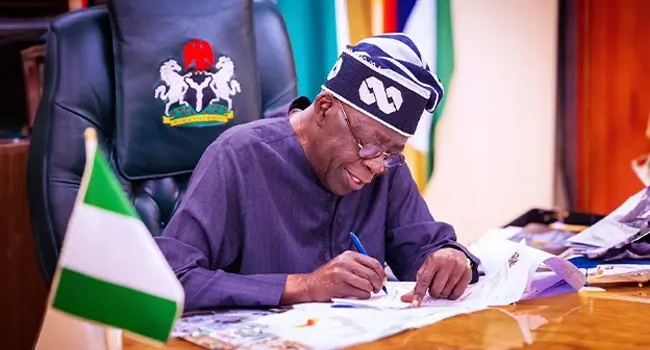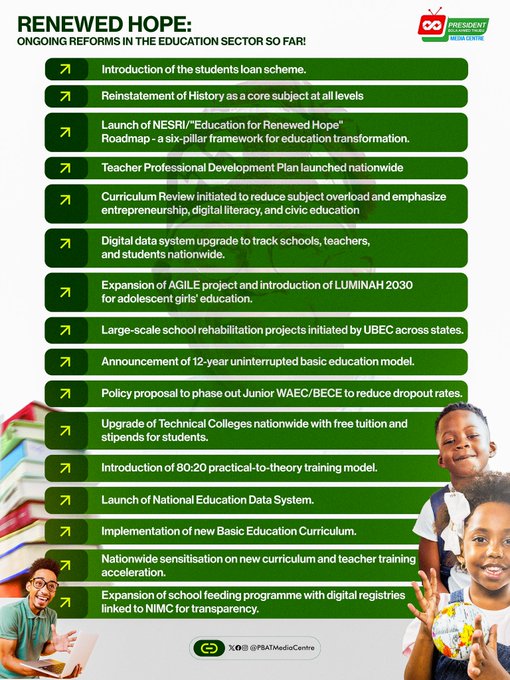The presidency has outlined key reforms being implemented in Nigeria’s education sector under President Bola Ahmed Tinubu’s administration.
Special Assistant to the President on Social Media, Olusegun Dada, revealed these initiatives in a statement shared on his X (formerly Twitter) account on Saturday.
According to Dada, the reforms align with the federal government’s broader #RenewedHope agenda, aimed at revitalising various sectors, including education.
Among the reforms highlighted are the introduction of a Student Loan Scheme to support access to higher education, and the reinstatement of history as a core subject at all educational levels.
Additionally, the administration has launched the “Education for Renewed Hope” Roadmap through the Nigerian Education Sector Reform Initiative (NESRI). This strategic framework seeks to transform the education system to meet contemporary needs.
The government is also undertaking a curriculum review to place greater emphasis on entrepreneurship, digital literacy, and civic education, preparing students for the challenges of the 21st century.
Furthermore, the school feeding programme is being expanded, with digital registries now linked to the National Identity Management Commission (NIMC), aiming to improve efficiency and targeting.
Dada’s full statement on X read:
“Ongoing reforms in the education sector in line with the #RenewedHope agenda of President Bola Tinubu’s administration. Here are key reforms amongst several others: Introduction of the Student Loan Scheme. Reinstatement of history as a core subject at all levels. Launch of NESRI/’Education for Renewed Hope’ Roadmap. Curriculum review to emphasise entrepreneurship, digital literacy, and civic education. Expansion of school feeding programme with digital registries linked to NIMC.”
These measures reflect the Tinubu administration’s commitment to enhancing educational access, quality, and relevance across Nigeria.




